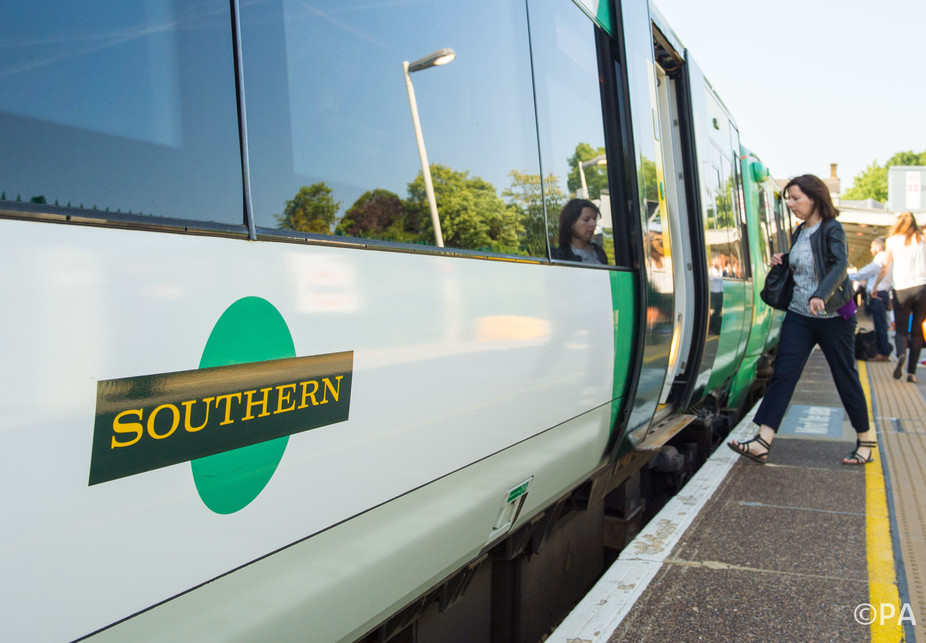
Date: 2026-01-17 Page is: DBtxt003.php txt00011751
UK ... Economic Performance
Transportation
Lessons for Southern Rail from McDonald’s move to automation
Burgess COMMENTARY
Peter Burgess
Lessons for Southern Rail from McDonald’s move to automation

If only commuting was so simple. Dominic Lipinski / PA Wire
Southern Rail’s latest strike action may have come to a premature end but the train operator’s problems in the UK are far from over. Southern’s employees, customers and bosses are all unhappy.
It was plans to cut staff by making it the role of drivers, not conductors, to close train doors (using CCTV) that led the rail workers' union, the RMT, to call a five-day strike. The effect that automation is having on rail jobs has also been a cause of industrial action among London tube drivers and Virgin East Coast staff.
Commuters meanwhile marched on the Department for Transport to air their frustrations at months of disruption and overcrowding. Some have quit their jobs because of delays on Britain’s busiest and worst performing train line. Why, many ask, must they pay a premium to travel in cattle-class?
For companies trying to turn a profit, pleasing both customers and staff may seem like a zero sum game in which pleasing one comes at the cost of the other. But an appreciation of this kind of paradox and McDonald’s investments in technology and staff might offer some useful insights. McDonald’s has recently shown how it is possible to achieve a win-win outcome when it comes to introducing automation, as well as both employee and customer satisfaction, which ultimately leads to profits.
Commuter fun. Annabel Bligh, CC BY-NC-ND Increasing automation
On the one hand, the UK has a lot to celebrate when it comes to railways. The extension of the Eurostar means you can reach Marseille from London in just over six hours. London Underground’s new Elizabeth Line route should be opened on time in 2018 for Crossrail, Europe’s largest construction project. The tube will also soon be running an all-night service on weekends.
So is this Southern discomfort merely an exceptional case of a hapless franchise in need of reorganising, or even re-nationalisation? Unquestionably, uncertainties over train journeys are making rail passengers’ lives a misery. But we are living in paradoxical and vulnerable times of austerity and terror threats; we need to install new modern trains to boost the economy while keeping fares competitive and passengers safe.
The move toward jobs being automated is a key characteristic of the fourth industrial revolution, the name given to the new economic era by Klaus Schwab, the founder of the World Economic Forum. According to an Oxford University study, there is a 68% likelihood of a train driver’s job being replaced by technology within the next two decades.
But this isn’t necessarily the answer to commuters' problems (they just want to get to work on time). Nor should it necessitate huge job losses. Yet staffing cuts are undoubtedly seen as an obvious area for cost saving, in line with the McNulty report, the major rail review from 2011 on how to get “value for money” from Britain’s railways.
Job creation
So what might train operators learn from McDonald’s, one of the world’s biggest brands? Like Southern, McDonald’s works on a franchise business model. In July it announced the creation of 5,000 new jobs by the end of 2016 in the UK.
Paradoxically, the world’s fourth largest employer, McDonald’s is upping the ante on both machines and on people. Its “Create Your Taste” kiosks give customers greater choice and reduce queuing.
These are integrated with table service delivered by crew members (“hosts”) trained in high quality hospitality skills.
